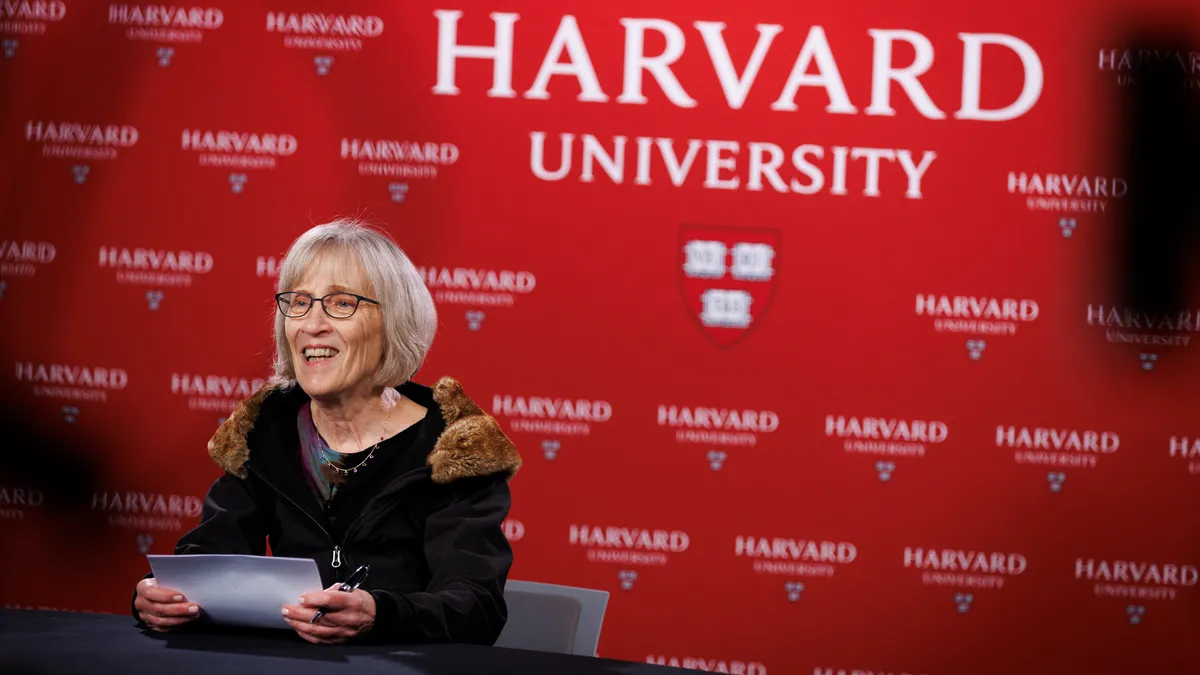Dive Brief:
-
Claudia Goldin, a professor at Harvard University, on Monday was awarded this year’s Nobel prize in economic sciences for her work uncovering “key drivers of gender differences in the labor market,” according to a release from the Royal Swedish Academy of Sciences which credited her with providing “the first comprehensive account of women’s earnings and labor market participation through the centuries.”
-
Female participation in the workforce, affected by changing social norms regarding women’s responsibilities for home and family for over 200 years, access to contraception and rising education levels, has tracked a “U-shaped curve,” with married women’s representation declining in the early 19th century amid the transition from an agrarian to an industrial society, then beginning to rise again with the growth of the service sector in the early 20th century, the release states. Yet Goldin also found an earnings wage gap persists between men and women in the same occupation, largely emerging with the arrival of the first child and the responsibilities that many women take on for children.
-
Viewed as a pioneering force in the study of pay and women at work, Goldin has shone a light on the gender disparities that continue despite rising numbers of women with high levels of education in the workforce. “We’ve come to a point in which women’s employment is extremely high and yet there are inequalities, and those inequalities are inequalities that occur within households,” Goldin told The Harvard Gazette Monday, adding that there’s now an understanding of the impacts stemming from “the ways women both work and care for those around us.”
Dive Insight:
Goldin’s award follows a recent rise in environmental, social and governance programs at many companies where senior executives are working to foster greater pay equity as well as to put more women in top C-suite roles.
Yet women are still minorities in terms of the share of lucrative corporate positions that they hold. The total number of CFO positions held by women rose to just 18.8% of the S&P 500 and Fortune 500 companies this year, according to a recent survey from the executive search firm Crist|Kolder, up from 16.3% last year, CFO Dive previously reported. Indeed, concern about the underrepresentation of women in C-suites is part of the zeitgeist — most recently highlighted in a scene in the summer’s “Barbie” blockbuster where the eponymous main character bursts into the corporate headquarters looking for the female CEO — only to find a table full of men.
Goldin herself is in rare territory. She is only the third woman to be awarded the prize and the first to win it on her own, according to an academy spokesperson. In 2019, it was awarded to Esther Duflo, jointly with Abhijit Banerjee and Michael Kremer, and in 2009 it was awarded to Elinor Ostrom, jointly with Oliver E. Williamson, the spokesperson said.
Hopi Hoekstra, Edgerley Family Dean of the Faculty of Arts and Science at Harvard University, was one of many academics and economists who extolled Goldin’s work.
“With the long view of an historian and the exacting precision of an economist, she reveals both the enormous gains made by women in the workplace over time and the many ways in which true equity remains out of reach,” Hoekstra told The Harvard Gazette.













